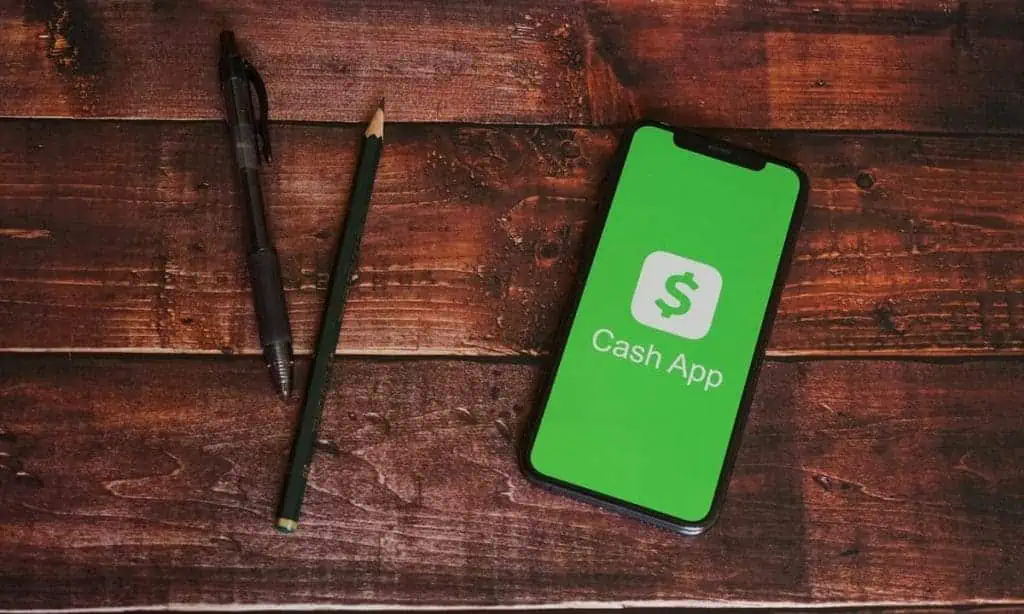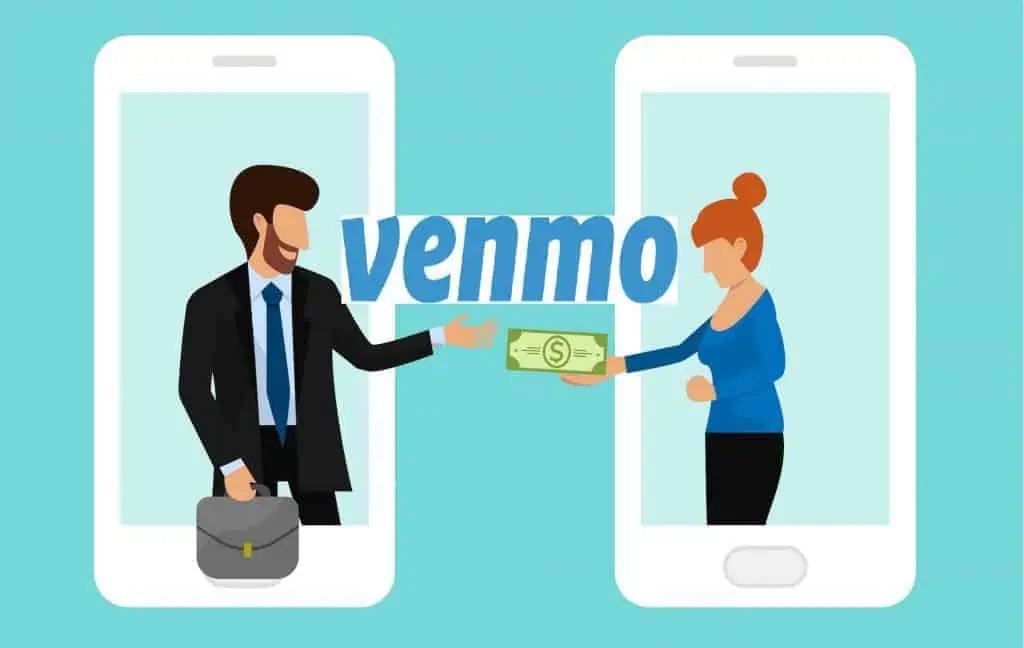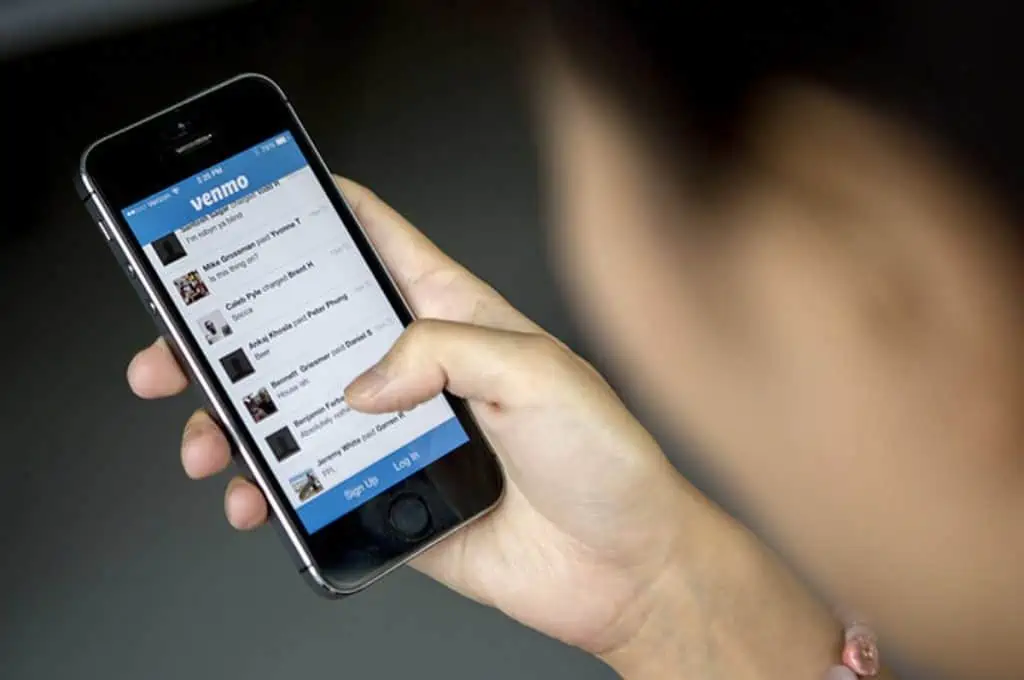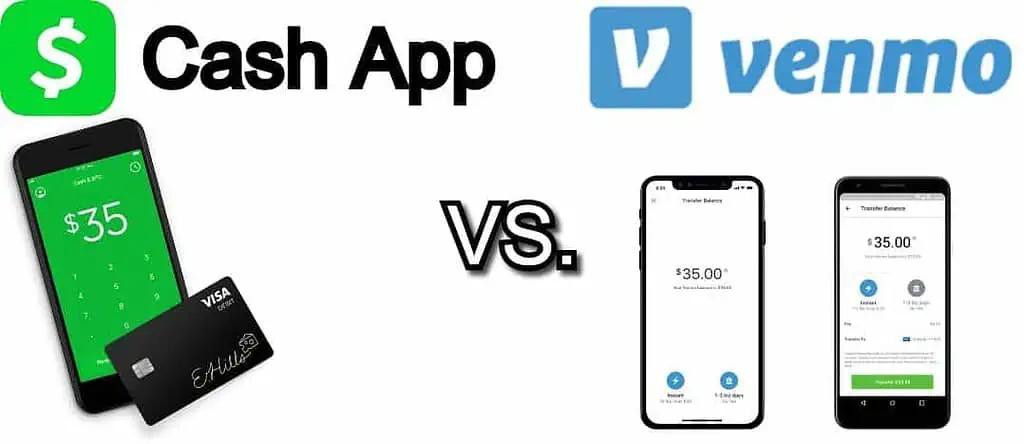When it comes to online financial applications that you can access from your phone, there are two outstanding competitors, Cash App and Venmo. Each one does the same thing, but subtle differences make them better or worse for certain users. In this guide, I will be comparing the two and discussing the pros and cons of each. By the end, you’ll know for sure when it comes to Cash app vs Venmo, which one is the best for your financial needs.
The main difference between Cash App and Venmo is the human element. Venmo is much more of a financial, social network, while Cash App is built for managing money and only that. Venmo also has better customer service overall, while Cash App seems to be devoid of any human element that can help with your issues.
| Cash App | Venmo | |
| Fees | 3% deposit charge on credit cards, 1.5% charge on debit cards. ATM fees waived dependent on monthly deposits | Bank transfer fee is 1%, ATM fee is $2.50 for every out of network transaction |
| Customer support | Email only (with long response times) | Available online or on the phone 24/ |
| Ease of use | Very easy to use with a superb design | Quite easy to use, but slightly more complex than Cash App |
| Referral | Referral bonus of $5 per user | None |
Cash App Pros
- Payments are instant, with no fees if they’re to other Cash app users
- Can set security on payments via $Cashtag
- Rewards program for certain purchases
- Investing in stocks, shares, and Bitcoin via the app
- Very well designed for mobile use
- Referral benefits of $5 per user
- International payments

Cash App has several benefits that make it the perfect app for managing your money. Sending or receiving money between Cash App users incurs no fee, which is why people use it. You also get a $5 referral bonus if a user you refer signs up to the service.
It’s not commonly known that you can set your own secure $Cashtag on Cash App. It’s a level of protection that makes it possible only for the recipient to access the money you send. Without the password, you can’t get it.
An undeniable bonus of Cash App is its design. It’s easy to use, and everything is extremely well organized. This makes it possible to switch between managing payments to others and investing. That investment opportunity is something Cash App offers, and Venmo doesn’t. You can take your money and put it into Bitcoin, stocks, or shares, and do it all from your phone.
While you can make international payments with Cash App, they’re only possible between UK and US users. The app isn’t available outside of these countries, so these are the only international payments you can make.
The final pro worth knowing about Cash App is that you can get cash back and benefits by using it. Several companies have partnerships each year, offering users the chance to get money off purchases or other special deals.
Cash App Cons
- Can’t cancel payments easily, if at all
- no live customer service
- Must spend money on the Cash App card
- Fees for withdrawing or depositing cash
While Cash App is straightforward to use, it’s not without its drawbacks. Once you’ve sent a payment, for example, there’s almost no chance of getting the money back if you sent it to the wrong number, email, or user. This is because there’s no facility for getting the money back in the app and no live customer service to help you retrieve it.
That lack of customer service causes issues elsewhere in the app. If you can’t speak to a human when you need help, then it makes investing in Bitcoin or doing anything else a lot riskier. That level of care is usually reassuring, but without it, there’s a level of caution that users need to maintain while using the app.
You’ll be paying fees when transferring money to or from a bank account or credit card. There’s a 3% charge for depositing money from a credit card and a 1.5% charge for banks and debit cards.
Finally, you can only spend money with Cash App through their card. This is misleading given that it’s called ‘Cash App,’ though there’s no way around it. If you need to know how to deposit money onto your Cash App card, check out our guide here.
Venmo Pros
- Payments are instant
- Social network features
- Live customer service
- Free ATM withdrawals via MoneyPass network

Venmo isn’t necessarily better than Cash App, but it is very different. Nowhere is this difference more obvious than in customer service. When it comes to the core of Cash App vs Venmo, it really is this aspect that’s the most important. Having someone to talk to when you have a problem is far better than nothing at all, which is what Venmo offers.
Moving on, Venmo acts more as a social media platform for finances. You can send messages and emojis, making it all seem like a new way to contact people. While that may seem unnecessary, it does make the service more accessible and intuitive to users.
In Venmo payments are instant, and there aren’t any fees between Venmo users. There are charges for depositing money through bank transfers, but you can withdraw money directly from Venmo with the MoneyPass network for free from ATMs. Compared to Cash App that requires that you deposit $300 each month to get free ATM withdrawals. You can read more about that in our guide here.
Venmo Cons
- Can’t cancel payments
- ATM fees out of network are $2.50
- Bank transfer fees are 1%
- Feels less financial due to social aspects
As with Cash App, you can’t cancel a payment with Venmo once you’ve made it. However, if the person you’ve sent money to doesn’t have a Venmo account, you can get a refund. Usually, this is for users who send money to a mobile number or email address. If you need more information on this, read our guide here.
If you’re not using the MoneyPass network ATMs, you must pay a transaction fee of $2.50 for every ATM transaction you make. This is standard for most online banks, but there is an option to use the network if you need to regularly use an ATM.
Finally, if you’re depositing money from a bank account, you’ll be charged a 1% fee. Cash App charges 1.5%, so in this isolated instance, Venmo comes out on top. This, combined with the app’s social elements, makes it feel less like a banking app and more like something between Twitter and Cash App.

Cash App vs Venmo
Unlike our article covering the differences between Paypal and Cash App, Venmo and Cash App are very different. Which one you use totally depends on your needs.
If you’re looking for a financial app that you can use to receive and make regular payments, then either is great. However, Cash App is more financially focused, and if all of your money is going through this account, then the ATM fees aren’t an issue.
Should you want something you can use with a group of friends to transfer money to buy meals or go on holiday, then Venmo is much more ideal. It provides the ability to create a social space where you can also deal with money. Removing the need for using multiple applications. It also has better customer support, which is far more reassuring when you’re dealing with money.
Verdict
There’s no clear winner between these two apps since they are both very different. If you need an app that’s purely financial and offers a way to invest your money within the same space, then Cash App is exactly what you need.
If you’ve got a group of friends that you’re hoping to streamline the process of paying for group activities with, then leave it to Venmo. You’ll be using the app so irregularly that it’s not worth the other features it offers.
One caveat here with Cash App vs Venmo is that Venmo charges a lower fee for bank transfers. If you’re regularly moving money out of your bank to pay other mobile banking users, then Venmo could be a cheaper alternative. The difference between 1% and 1.5% isn’t massive, but over time and multiple payments, say for a business, it can add up to a lot.
